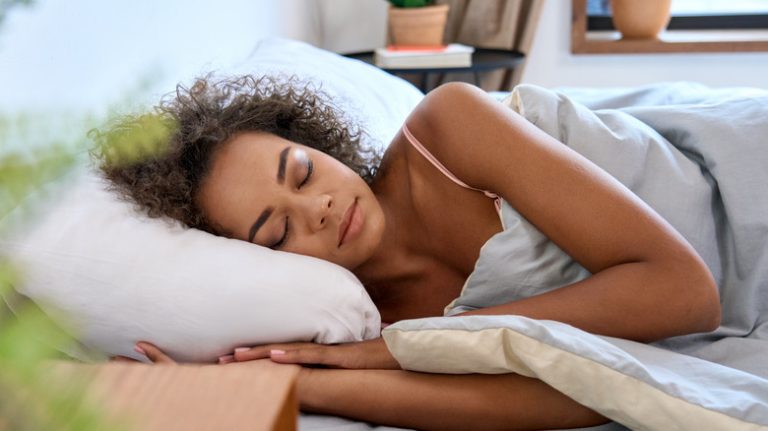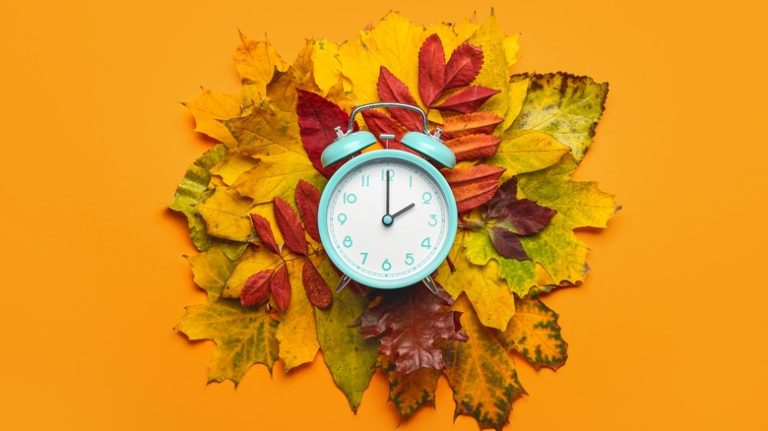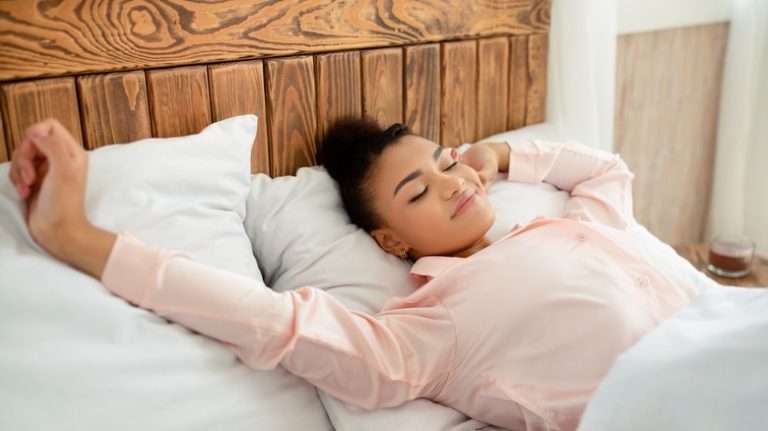You may take a nap because you’re exhausted after a restless night of tossing and turning. Or maybe you’re just feeling wiped come lunchtime because your work is mentally taxing or your morning workout was totally exhausting. And, sometimes, you just can’t with the day, so you close your eyes to turn off your racing mind for a bit.
Whatever the case, it’s okay — and even encouraged — to get some shut-eye if you can squeeze it in. Resting to recharge can not only keep you from utterly burning yourself out, but it also has some surprising effects on your physical and mental health, according to the National Sleep Foundation.
We have to warn you, though: Napping is somewhat of an art form. It boasts a whole wealth of benefits when executed correctly, but resting for too little or too long can actually have adverse effects on you. Here’s a look at what really happens to your body — both the good and the bad — when you nap every day.
You’re less grumpy after you nap

You probably notice when you’re being a bit grumpy. Everything and everyone irritates you — even the way your colleague is chewing their food beside you or how your partner is breathing with their mouth open. Okay, these things are pretty annoying all the time, but they especially get under your skin when you’re feeling fatigued. You may feel yourself starting down a path of snapping at others and you know you’re being pretty darn overdramatic, but you can’t seem to control it. You might just need a good ole power nap. According to the National Sleep Foundation, napping helps us feel a lot less grouchy.
Napping for about 10 to 20 minutes is ideal; this short sleep sesh provides all the recovery benefits of sleeping without leaving you feeling, well, even sleepier after. If you nap for a half-hour or more, you’ll fall into too deep of a sleep, and it won’t feel so great to wake yourself up from that. Waking up groggy certainly won’t help you feel any less grumpy, so stick to what science the says: Bite your tongue and close your eyes for a few.
Napping improves your alertness and memory

Feeling like a zombie just going through the motions of your day? According to the National Sleep Foundation, taking a rest can help you to be more alert and present in the moment. But that’s not all, study after study after study (you get the point) shows that napping helps both infants and adults retain more information. This means that not only are you more aware of the information you’re taking in, but you also boost your overall memory of it all by napping, too.
If you’re feeling forgetful, know that taking a nap can actually help your brain hang onto way more information — even more so than cramming, a 2024 study published in Sleep revealed. For college students or working adults, napping could just make or break your grades or careers. So the next time you have a big upcoming exam or a presentation you have to memorize and give at work, put the books down and the slideshow away for a bit. Close your eyes instead.
Napping could reduce the amount of sleep you get at night
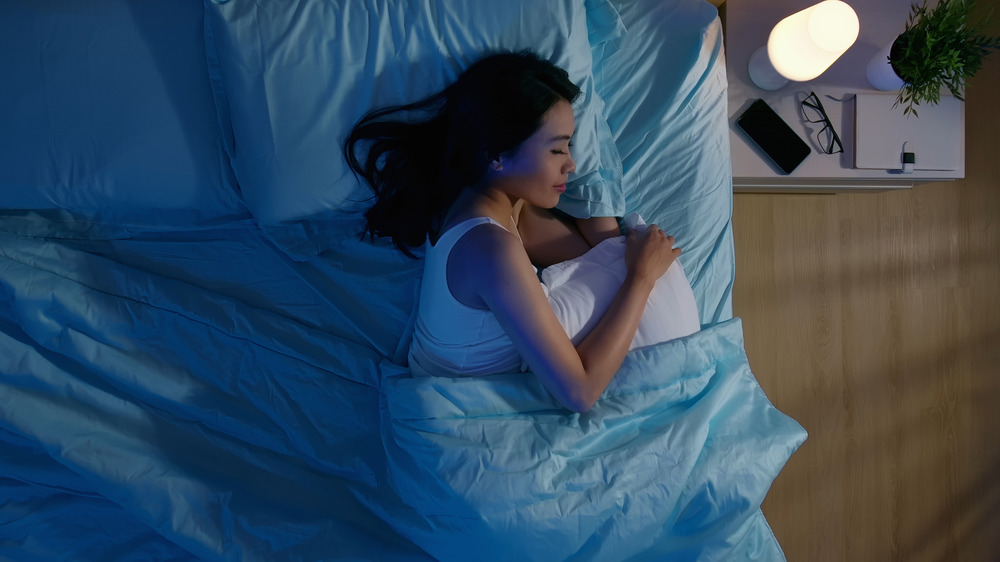
Shutterstock
While napping has a ton of indisputable health benefits — and, let’s be honest, it just plain feels good — napping could potentially negatively impact the sleep you get at night. Your body and mind need sleep at night. According to the National Sleep Foundation, healthy adults require between seven and nine hours of sleep per night. And babies, young kids, and teenagers need even more sleep than that in order to help them grow and develop. Of course, if you’re deprived of sleep from previous nights, know you’re not going to get much sleep in the coming days, or are feeling sick, you should get even more sleep if you can.
If you take a nap during the day, however, you might not feel quite as sleepy when you lie down at night. According to research published in the Journal of Clinical Sleep Medicine, more frequent napping is associated with shorter nighttime sleep duration. Be sure to keep your naps short as to not ruin your sleep later that night, and avoid napping too close to bedtime (via National Sleep Foundation).
Napping improves your heart health

Shutterstock
Napping doesn’t only feel good, it is good — at least for your heart health, according to the American College of Cardiology. That’s right, the college’s research suggests that people who nap for about an hour every single day experience the same kinds of drops in blood pressure that people who make healthy lifestyle changes and use medications often do. For example, reducing your salt and alcohol intake can bring your blood pressure down by 3 to 5 mmHg. A low-dose antihypertensive medication can also lower it by 5 to 7 mmHg. Similarly, taking a nap during the day is associated with an average 5 mmHg drop.
“We obviously don’t want to encourage people to sleep for hours on end during the day, but on the other hand, they shouldn’t feel guilty if they can take a short nap, given the potential health benefits,” one of the study’s co-authors, Dr. Manolis Kallistratos, told the college.
You feel less stressed after a solid nap
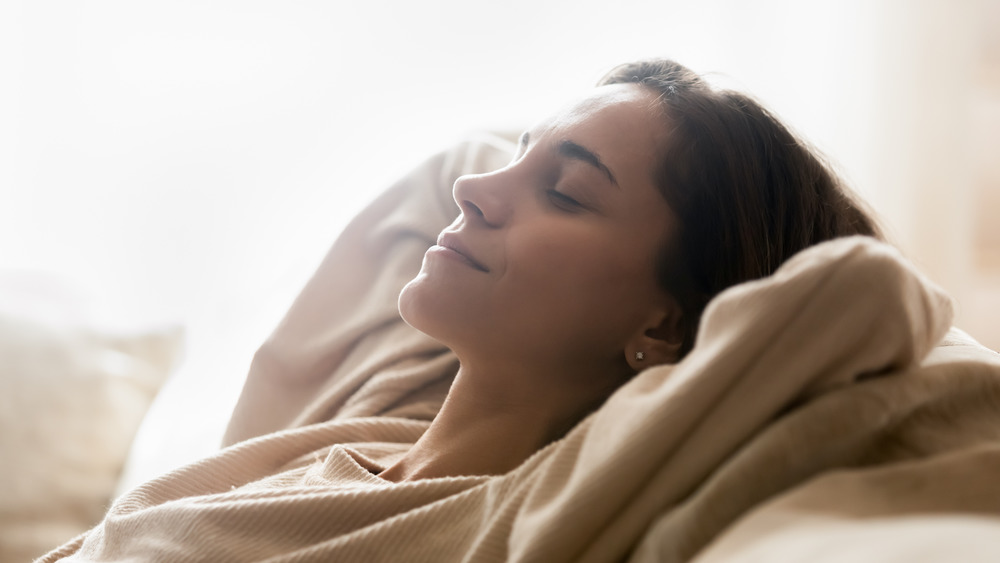
Shutterstock
We all have stress — work stress, family stress, relationship stress, financial stress, the list goes on and on. Sometimes, life gets the best of us and the stress of it all starts to take a palpable toll on our minds and bodies. It can really wear you down and have a huge impact on your health. According to the American Brain Society, which calls chronic stress a “silent killer,” it can quite literally knock you out. But a nap a day can help you keep that stress at bay.
A public release published by the American College of Cardiology explained that napping can lower your blood pressure. And lower blood pressure is linked to lower stress levels, according to research published by Harvard’s Healthbeat. So the more adequate sleep you get, the more you can keep your blood pressure down and the better you can manage stress.
Extra sleep could aid your weight loss efforts
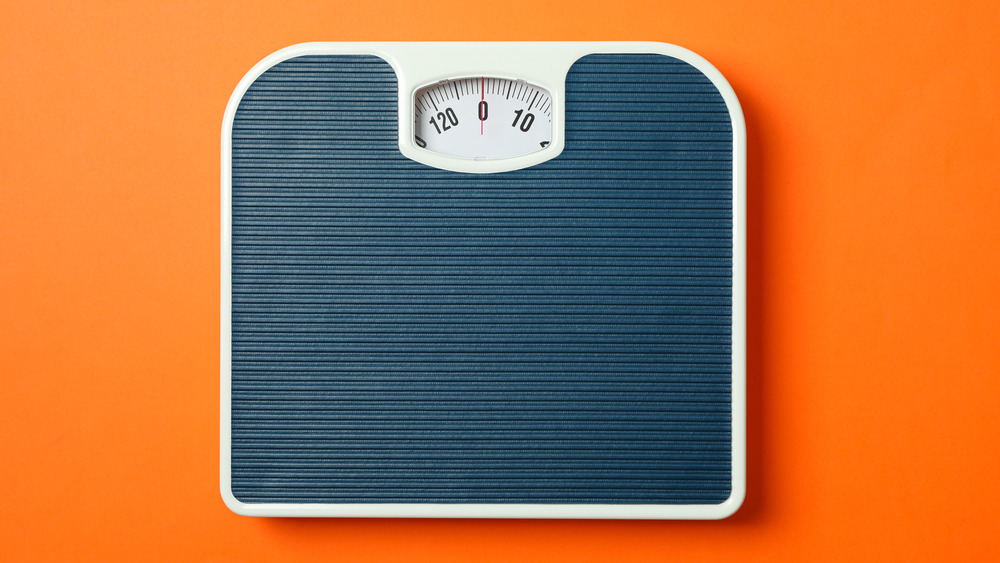
Shutterstock
If you are trying to lose weight, getting some extra sleep could probably help you along your journey, according to the National Sleep Foundation. In fact, over the last several decades, the amount and quality of sleep that Americans have been getting has steadily decreased. Over that same time period, the average body mass index (BMI) of Americans has increased.
Some scientists believe that this connection between sleep and weight has to do with the fact that poor sleep can affect appetites. The neurotransmitters ghrelin and leptin control your appetite, promoting hunger and making you feel full, respectively. Your body naturally raises and lowers the levels of these neurotransmitters throughout the day, and your sleep routine can throw it all off. Studies, like one published in Annals of Internal Medicine, have shown that people who sleep less feel hungry more, for example.
Additionally, a 2024 study suggested that sleep deprivation is linked to poorer food choices, which can lead to weight gain. So the more you sleep, the less hungry you’ll feel and the healthier choices you’ll make when you are hungry. However, too much sleep (and too little physical activity) isn’t advised.
Napping boosts your immune system

Shutterstock
Napping doesn’t only help to recharge your batteries and refresh you when you’re feeling blah; it can also boost your immune system, according to research published in the journal Brain, Behavior, and Immunity. A habit of napping may mean you’ll get sick less often. Plus, you will recover faster when you do inevitably fall ill. Ever wonder why your parents or caregivers always forced you to stay in bed when you stayed home sick? Sleep helps you get better, that’s why.
Because serious sleeping problems like sleep disorders such as insomnia, sleep apnea, and circadian rhythm disruption can interfere with the healthy functioning of your immune system, taking naps can help. According to the National Sleep Foundation, there are different types of naps, including “recovery” and “essential” naps. Recovery naps are for when you’ve missed a lot of sleep, whereas essential naps are for when you’re feeling under the weather.
Napping can enhance your problem-solving skills
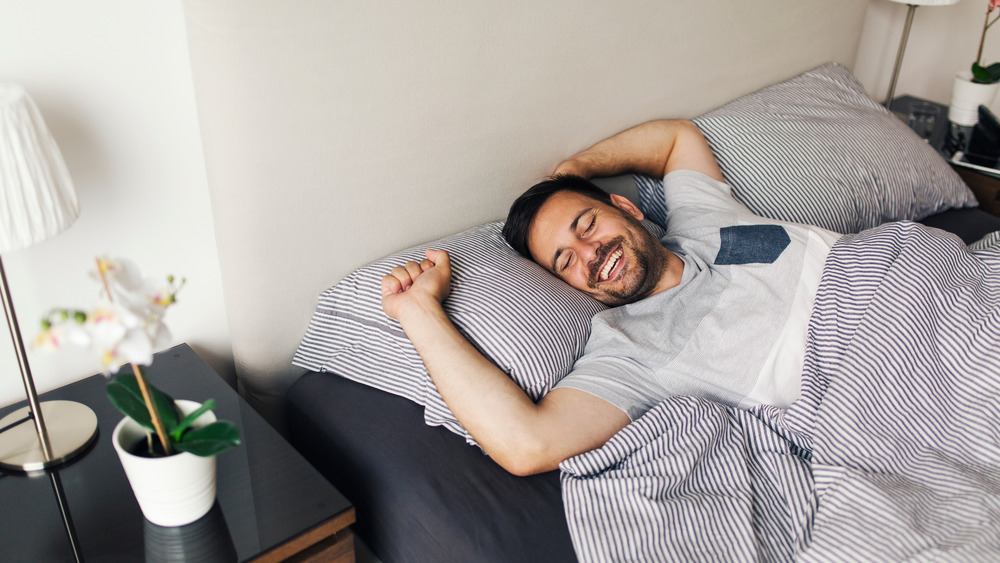
Shutterstock
Experiencing a bout of writer’s block? In a creative rut? Not feeling inspired? Can’t figure out your way around a complicated challenge? You might just need to lay down for a little while and rest your eyes. Believe it or not, napping can actually help to enhance your creativity and solution-thinking skills, according to research published in the journal Scientific Reports. Other research published in the journal Proceedings of the National Academy of Sciences of the United States of America also supports that rapid-eye-movement (REM) sleep could aid creative problem solving.
The research all suggests that taking a step back to rest and come back to whatever it was that you were doing could give you that kick you need. So whether you were trying to write a letter, create a piece of art, solve an issue in your workplace, or something else entirely, “sleeping on it” could really serve you well.
Napping could improve your athletic performance
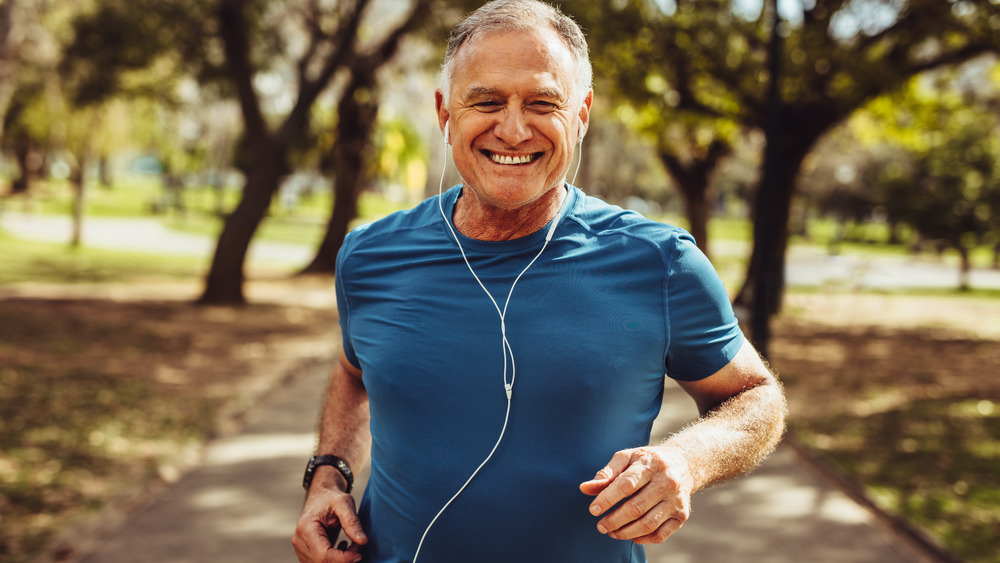
Shutterstock
While it’s easy to assume that “lazy” people are the ones who nap the most, some of the world’s best athletes are in fact avid nappers. Why? Napping could actually improve your game. Sure, resting after physical activity makes sense, but science says that napping before physical activity also has its benefits.
According to research published in Scientific Reports, napping has been associated with higher performances in athletes. Another study published in Frontiers in Physiology finds that athletes may benefit from 25-, 35-, or 45-minute naps before practice or before a competition. This is true even if they’ve had a full night’s sleep. Never mind the wealth of research that points to a link between napping and alertness and productivity (via National Sleep Foundation).
Whether you’re going out for a run, hitting the gym, heading to sports practice, or going into a game or competition, taking a rest beforehand may do you some good.
Napping may affect your longevity
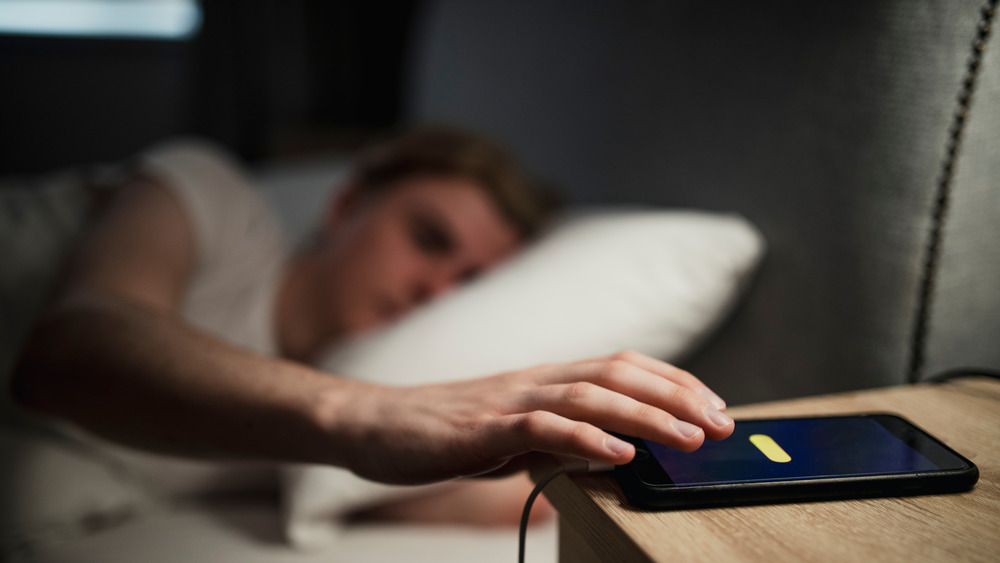
Shutterstock
Napping is wonderful, isn’t it? It’s so great that it may even be able to help you live longer, according to one study published in the journal Heart. That’s because those who nap at least once or twice per week have a lower risk of “fatal and non-fatal CVD [cardiovascular disease] events.”
So okay, while it’s clear that napping can be so amazing that it could even lower your mortality risk, it’s also important to note that how long you nap really does matter. Napping is all well and good in most cases, but napping too much or for too long could do some serious damage. It could even impact your longevity for the worse. Yes, too much sleep could eventually kill you, according to research published in the Journal of the American Heart Association. And as Johns Hopkins Medicine highlighted, oversleeping is associated with heart disease, obesity, depression, a greater risk of dying from a medical condition, and more.
Adequate sleep can help your libido

Shutterstock
Getting good sleep doesn’t only affect you in an advantageous way, but it can also positively impact your intimate relationship(s). Good sleep is linked to higher libido in women, according to research published in The Journal of Sexual Medicine. But it’s not just women who experience the boost. Sleep also impacts sexual functioning in men, too, according to a study published in the World Journal of Men’s Health. This study found that poor sleep may be at the root of erectile dysfunction (ED), for example.
“While additional research is needed to elucidate the mechanisms by which sleep disorders cause sexual dysfunction, there is evidence that ED can be a consequence of several sleep disorders,” the researchers explained. “We suggest that andrologists, urologists, and other physicians at clinic consider sleep disorders when they see patients with sexual dysfunction, especially given the fact that many sleep disorders are underdiagnosed.” In other words: Taking recovery naps when you haven’t gotten adequate sleep might be the boost you need to get the, uh, boost you need.
Napping could relieve symptoms of depression
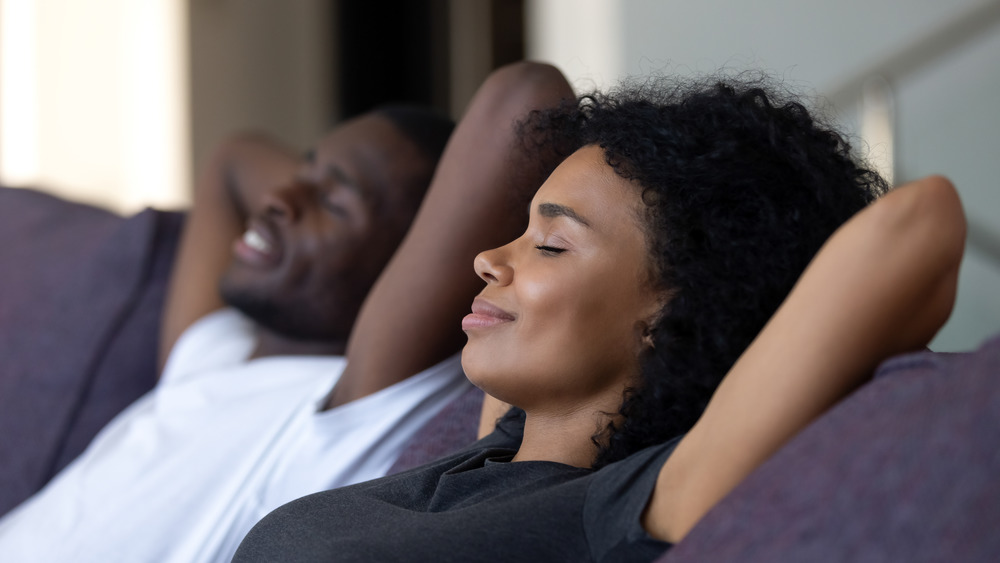
Shutterstock
Napping can be both a product of, and a relief for, depression. One major red flag that you or someone you love is feeling depressed is that you or they are sleeping the days away. Ever heard of “depression naps?” You know those naps you take to shut out the rest of the world? They can be dangerous. In fact, research published in BMC Public Health suggested that there’s a positive association between depression and daytime napping, as well as daytime dysfunction.
“If [napping] is being used to avoid doing or confronting difficult things or is being done excessively while connected to depressed feelings or low energy, then it may be a symptom of a psychological disorder,” Simon Rego, chief psychologist at the Montefiore Medical Center and Albert Einstein College of Medicine in New York City, told Health.
Nevertheless, taking 10- to 20-minute naps are considered ideal and healthy, according to the National Sleep Foundation. And because insomnia and sleep deprivation are also symptoms of depression, napping during the day might be beneficial and even necessary.
Getting more sleep could improve your gut health
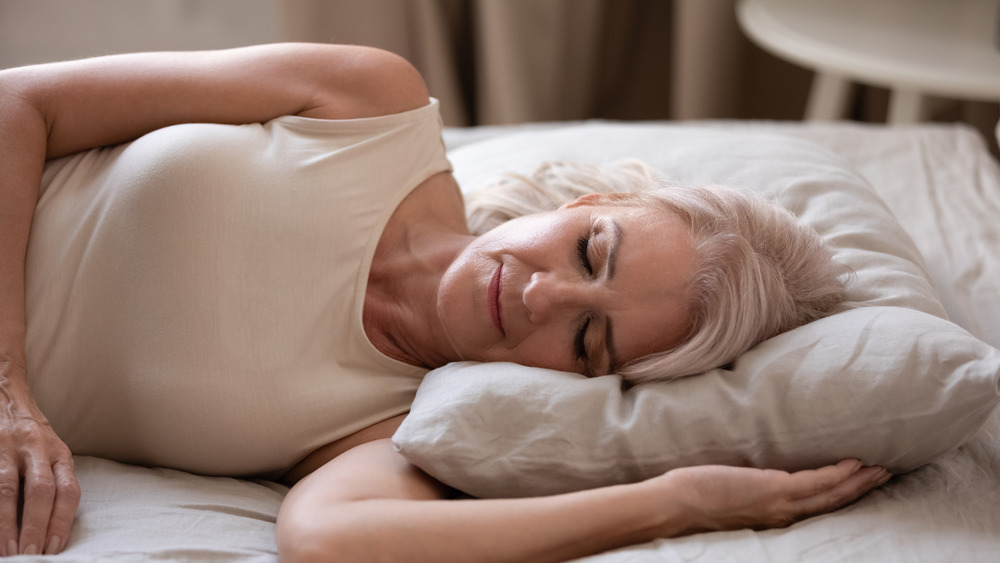
Shutterstock
Sleep boasts a lot of benefits, one of which is improved gut health. According to research published in Frontiers in Psychiatry, “there is considerable evidence showing that the gut microbiome not only affects the digestive, metabolic, and immune functions of the host but also regulates host sleep and mental states.” To boil it all down: There’s a link between your gut health and your sleeping habits. And that’s not all. The research suggests the worse sleep you get, the worse your gut health, and vice versa.
A growing body of research also links your sleep patterns and quality to your gut. “Given the strong gut-brain bidirectional communication they likely influence each other,” Jaime Tartar, a professor and research director in Nova Southeastern University’s College of Psychology, explained (via ScienceDaily). “We think that poor sleep probably exerts a strong negative effect on gut health/microbiome diversity.”
Napping for too long could increase your risk of type 2 diabetes
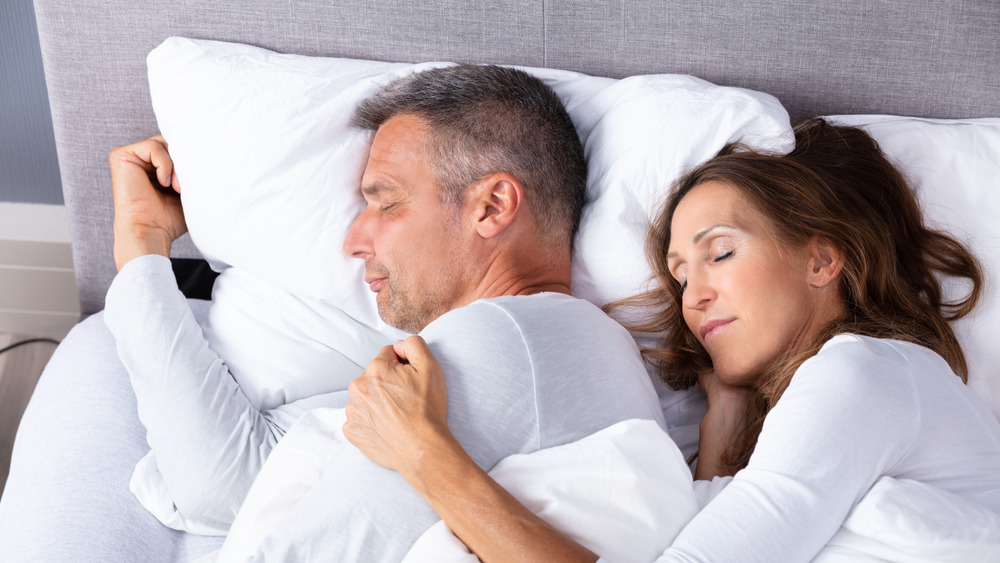
Shutterstock
We get it: You love to nap. We love to nap too. Napping is great. It’s no secret. But all of us would benefit by considering how much and how long we’re napping. According to research published in the journal, Sleep, napping for too long could increase your risk of developing type 2 diabetes. So how long is too long? According to the National Sleep Foundation, this sort of depends on you, and factors like your age and reasons for napping.
The elderly, kids, and babies need to nap a lot more than adults. And people recovering from a lack of sleep or trying to get better from an illness also need more sleep. But, on average, a healthy nap isn’t longer than 20 minutes. Any less and the nap won’t do much of anything for you; any more and you give your body a chance to fall into a deep sleep. The foundation recommends setting an alarm so you don’t accidentally oversleep. And don’t be afraid to pencil naps into your daily routine. “Think about what you hope to gain from your nap,” the National Sleep Foundation advised. “When you set intentions, you can plan your nap around those goals.”

